The Year In Horror: Faces Of Fear In 2024
This year’s crop of fright fests tapped into the fear of losing control of our mind and body to an invasive entity, be it the devil, his offspring or a younger version of ourselves.
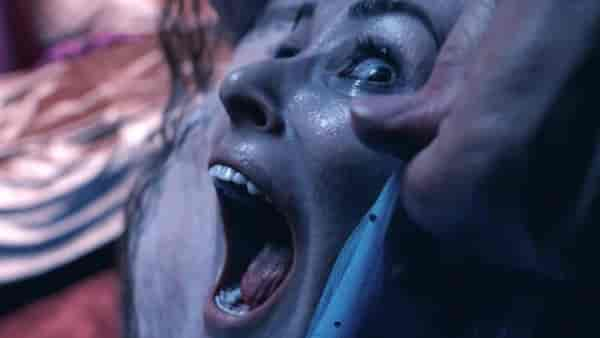
Last Updated: 08.34 PM, Dec 19, 2024
A NAGGING THRUM OF UNEASE coursed through the entirety of 2024, another year of converging crises. Wars without end. Humanitarian catastrophes. Reproductive rights under threat. Inflation. Precarious work in a gig economy. Elections that didn’t go the way at least some of us wished. Take your pick. If there is one genre of movies that tends to flourish in such times of unease, it is horror. Trust horror to always keep its finger firmly on the pulse of all the nightmares troubling us. This year’s crop of fright fests tapped into the fear of losing control of our mind and body to an invasive entity, be it the devil, his offspring or a younger version of ourselves.
Though we lost a couple of horror icons in Kazuo Umezu and Tony Todd, 2024 should be remembered as a year we potentially gained new ones in the making. Coralie Fargeat (The Substance), Veronika Franz and Severin Fiala (The Devil’s Bath) bolstered their reputation as auteurs. Anointed master Kiyoshi Kurosawa gave us a fresh nightmare. Naomi Scott (Smile 2) and Nell Tiger Free (The First Omen) were coronated as scream queens, taking their rightful places next to Maika Monroe, Mia Goth and Samara Weaving. If not anything else, rest assured horror movies are safe in the hands of the new generation.
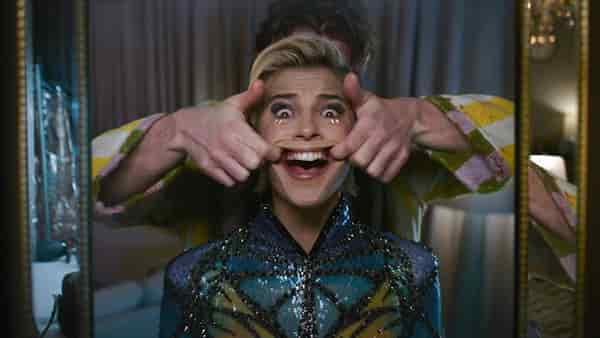
A reason to smile
As always, there were gratuitous remakes (Speak No Evil), prequels (Apartment 7A) and nostalgia plays (Alien: Romulus). But some studio releases did hold their own against the indie productions. Parker Finn (Smile 2), Arkasha Stevenson (The First Omen), and Michael Sarnoski (A Quiet Place: Day One) injected a bit of brio into big-budget horror movies. The concept behind Finn’s debut feature Smile (2022) was simple enough — a parasitic curse that passes from one host to another. The movie struck box-office gold thanks to some canny marketing based on its defining motif of a smile stretched to an unsmile, from a cordial gesture that says “welcome” to a threat display that says “run.” The movie had its moments without making much of an impact. Second time around, Finn fares much better by doubling down on the psychological horrors and moving the action to the parasitic world of celebrities. Naomi Scott dazzles as Skye Riley, a pop star looking to make a comeback after an accident, only to become the latest victim of the curse. As setbacks steadily accumulate, Skye’s mind spirals out of control. For all its strengths behind and in front of the camera, if only Finn hadn’t resorted to fakeouts, he could have had an unmistakable triumph. A Quiet Place: Day One may have been low on the suspense quotient, but Sarnoski more than makes up for it with a sneakily poignant tale about mortality and the need for connection in times of crisis. All it took was a confident indie director and a terrific Lupita Nyong’o to make the whole silent post-apocalypse conceit that felt played out suddenly shivering with fresh possibilities. Who knew?
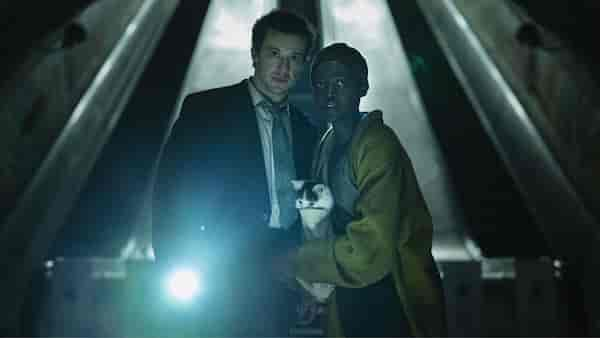
It’s twins!
Trailing Michael Mohan’s Immaculate by a couple of weeks, Arkasha Stevenson’s The First Omen was a more accomplished production, also about a young American nun travelling to an Italian convent, one hellbent on driving people back to the Church in whatever way possible, even if it meant forcibly impregnating women against their will and knowledge. Where the two nunsploitation flicks differ is in the execution. Immaculate scrambles its way through but nails the landing whereas The First Omen keeps viewers gripped all the way through but fluffs the landing. Part of the reason why Stevenson’s film ends up disembowelling itself in an act of hara-kiri at the end is right there in the title. Because it is a prequel and it has to be tied to the 1976 classic that birthed it. It will be interesting to see how Stevenson fares when freed from the expectations that come with franchises and big budgets. But she sure has burst onto the scene as a fully-formed horror talent to watch. Nell Tiger Free meanwhile builds her horror bona fides with a feral performance channelling the rage of a woman fighting for bodily autonomy. The same rage is no less deeply felt in Sydney Sweeney’s face in Immaculate, even if the movie itself makes for a frustrating watch for the large part.
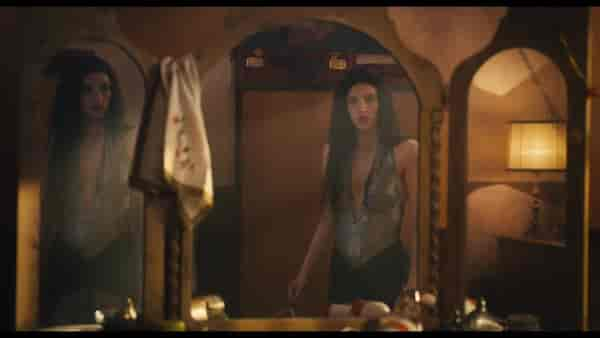
Pump it up
Coralie Fargeat’s second feature The Substance is as queasy a portrait of internalised self-hatred as has ever spilled across the screen. If you can get beyond the ick factor, there awaits a body horror burlesque wholly unified in intention. Fargeat cuts into the spine of the entertainment industry and the larger society which won’t let women forgive themselves for ageing. The desire to stay young and relevant compels Demi Moore’s fading star to turn to a black-market treatment that can create a younger version of herself (played by Margaret Qualley). However, not following the instructions that come with the treatment may result in life-altering side effects. A fight for control between the older and younger versions culminates in a gonzo finale, one that may seem mean-spirited, but it sure drives home Fargeat’s point about how every beauty treatment sold as self-care is ultimately an advance deposit on another woman’s self-disgust.
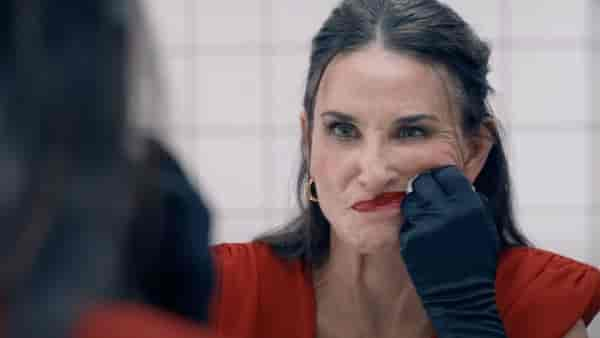
Catch me if you can
There was a lot of hype around the release of Oz Perkins’ Longlegs. The opening moments do tease a darkly tantalising serial killer drama. But despite a freaky Nicolas Cage and a stellar Maika Monroe, the end result turned out to be a pale imitation of much better movies. Luckily, for horror fans, what Longlegs promised, Strange Darling delivered. JT Mollner toys with our expectations by turning a cat-and-mouse chase into something more perversely fascinating. His deceptively slim premise — of a one-night stand escalating into a fight for survival — hides a serrated edge. Told out of order, the movie becomes a whole different beast once its gotcha moment arrives. Knee-jerk reactions may brand the gotcha a twisted subversion or an attempt to be transgressive that ends up being regressive. But Mollner is more interested in challenging our perceptions, our biases and our tendency to jump to conclusions. Come for the stylishly made survival thriller shot on 35 mm (as it proudly announces). Stay for — and prepare to be genuinely awestruck by — an incredible tour-de-force performance from Willa Fitzgerald.
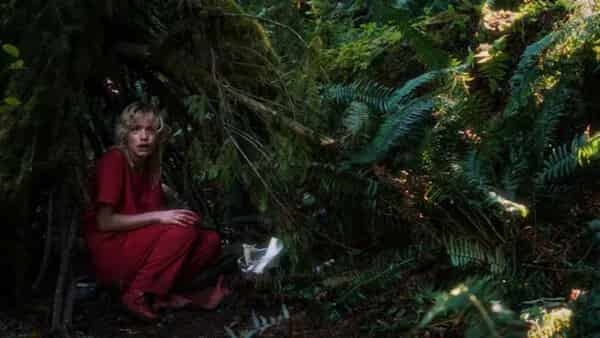
Fresh out of the oven
Classic horror archetypes appeared in new avatars this year. Chris Nash’s slasher In a Violent Nature takes us on a nature walk with a masked maniac as our tour guide. The camera stays with our hulking killer as he plods through the woods looking for horny young people to butcher. When he finds a nubile blonde doing yoga, he pretzels her into an asana that set the bar for visceral brutality this year. French filmmaker David Moreau gave the zombie movie an urgency with MadS, a one-shot theme park ride to the start of an outbreak unfolding in real time, proving there’s life in the undead yet.
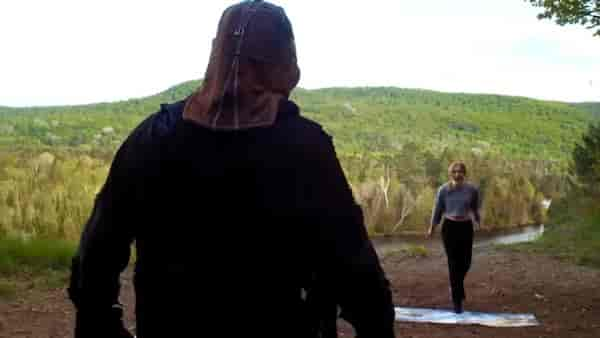
All the oddities
Speaking of, Irish writer-director Damian Mc Carthy crafted a spooky little murder mystery with a supernatural twist. There is a haunted house. There is an asylum. There are restless spirits, cursed objects and an eldritch wooden mannequin. Put them all together, you have Oddity. Well and truly. Dani (Carolyn Bracken) is renovating an isolated country house with her husband Ted (Gwilym Lee) when she is mysteriously killed in a home invasion. On the eve of her death anniversary, her twin sister Darcy (also Bracken), a blind medium, decides to pay a visit to find out the truth of what really happened.
Veronika Franz and Severin Fiala’s latest, The Devil’s Bath, proved the most terrifying horror stories lie in the pages of history, waiting to be explored. From 16th to 18th centuries, a plague of ritualistic child killings spread across central Europe. As suicide was considered a mortal sin that doomed souls to eternal damnation, depressed women took a more roundabout way to the afterlife by murdering children, sometimes their own, to get themselves executed, thereby guaranteeing salvation. Can you think of a more bloodcurdling paradox of dogmatic faith? Anja Plaschg plays Agnes, a young newlywed whose life is circumscribed by the walls of a loveless marriage and social norms. At a time when severed fingers were used as fertility talismans and bloodletting passed as a cure for melancholy, killing a child to escape the bottomless pit of despair didn’t sound so preposterous to tormented souls like Agnes. In fact, it felt like a practical solution, logical even, however appalling the logic may have been. Suicide by proxy, as the phenomenon came to be known, became a violent assertion of personal liberty, to live and die on one’s own terms.
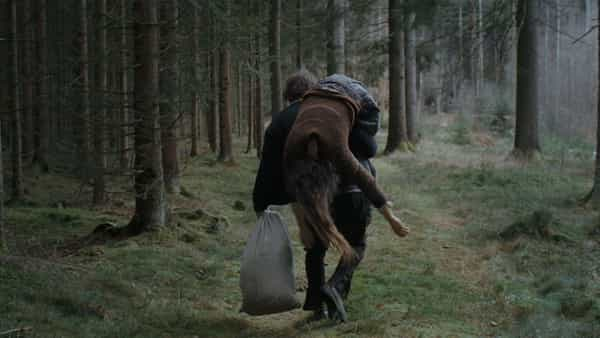
Kiyoshi Kurosawa had three films come out this year. But the one that was impossible to shake was Chime, a 45-minute puzzler as formally playful as chillingly enigmatic. Only the Japanese auteur can keep the dread meter at a steady 100 percent with just the unseen sounds of urbanisation. It is the kind of film which rewards viewers who remain attentive to suggestion. Across the sea, an occult horror movie became a box office sensation in South Korea. And for good reason. Once Jae-hyun Jang puts you under his spell in Exhuma, he doesn’t let go. Two young shamans (Kim Go-eun and Lee Do-hyan) team up with a feng shui expert (Choi Min-sik) to protect the newborn of a wealthy Korean American family from a generational curse. Digging into the past however leaves the trio having to face a vengeful spirit, a towering samurai oni and long-buried colonial traumas.
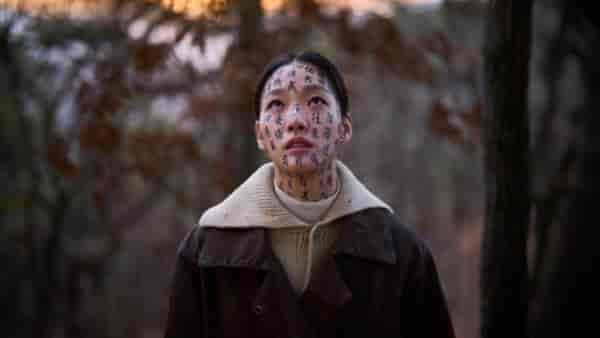
To wrap things up, here’s a list of the 10 best horror movies of 2024*, ranked in order of personal preference.
1. The Devil’s Bath
2. Oddity
3. Chime
4. Strange Darling
5. Exhuma
6. The Substance
7. In a Violent Nature
8. MadS
9. A Quiet Place: Day One
10. Smile 2
*It goes without saying that films yet to release (like Nosferatu and Heretic) have not been considered.

 Premium
Premium